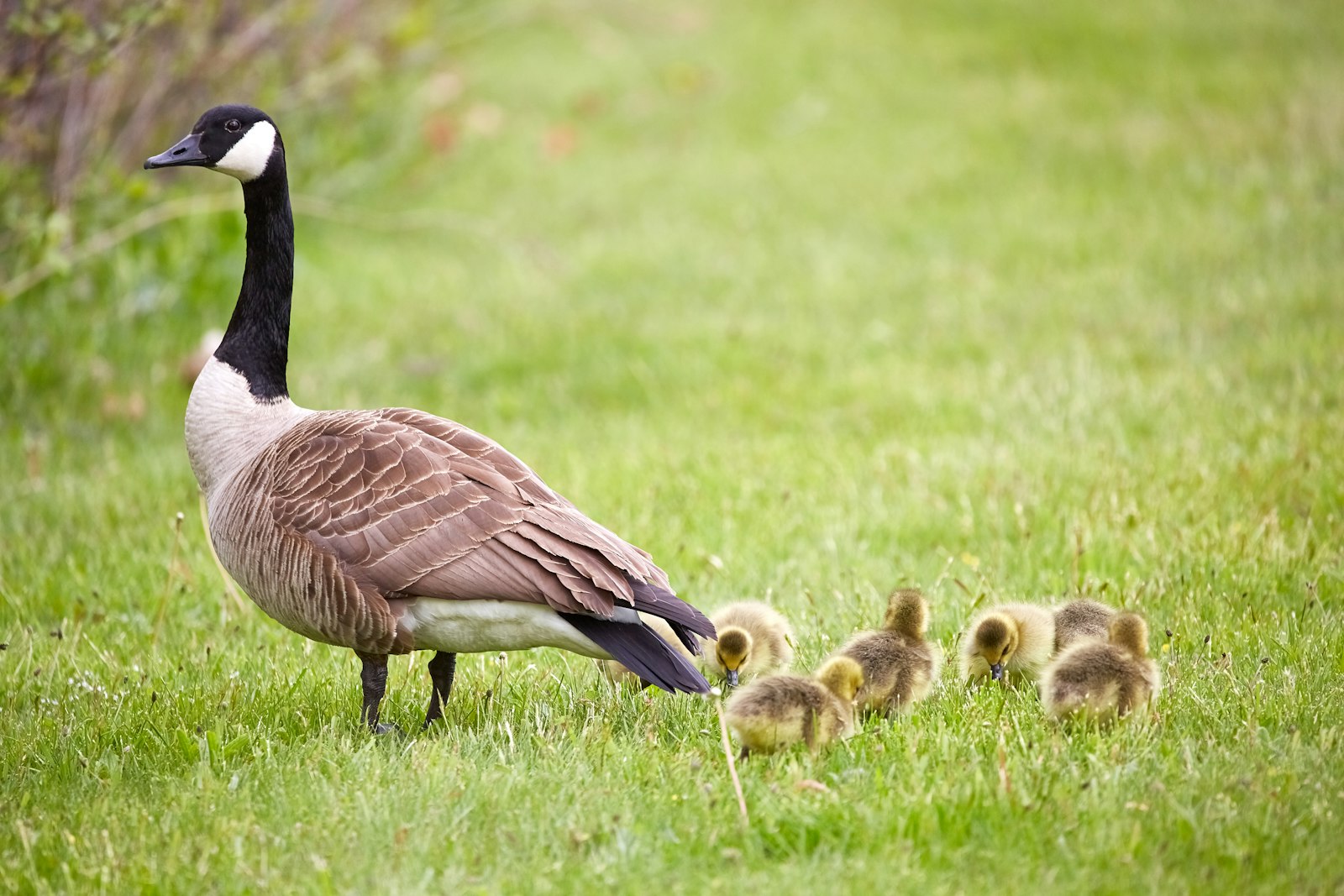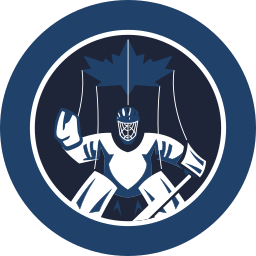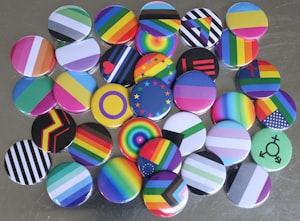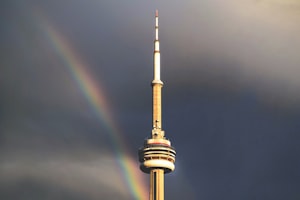As of Monday, the KHL's regular season is over. That means Nikita Grebyonkin has finished his first full KHL season, and we have a pretty large sample of his games and stats to talk about.
If you want a refresher for how his season has progressed, you can check up on the two other prospect reports I've written in October and January:


STATS & CONTEXT
Grebyonkin finished his season with 19 goals, 22 assists and 41 points in 67 games. That are all increases from his rookie season last year where he had 9 goals, 17 assists and 26 points in 45 games. On a per game basis (0.61 vs 0.58), that's only a very slight increase – with a drop in assists but a bigger increase in goals.
If you want to compare Grebyonkin to other top prospects in the KHL, his 41 points is tied for 2nd (albeit more games played) for U21 players in goals and points. The guy in first is his teammate, Danila Yurov, a December 2003 birthday who was taken 24th overall in 2022. Tied for second with fewer games played is Matvei Michkov, a December 2004 birthday who was taken 7th overall just last year. Then there's Grebyonkin, a February 2003 birthday. So while he's the oldest of the three, the fact that he's in the same group as two first round picks is only a good sign.
There is another bit of context that's important to keep in mind: his ice time and usage.
Last season, Grebyonkin was used as a clear top six winger on one of the worst teams in the league. He got top minutes at even strength (14:05) and on the powerplay (2:35). This season, while his usage fluctuated a lot earlier he's settled into a top 9 role and eventually regular powerplay time as well. Overall, both his even strength ice time (12:52) and powerplay time (1:58) has dropped compared to last season. So while his point per game rate looks basically the same, on a per minute basis the increase is more noteworthy.
However, it's worth noting how much more trust and therefore icetime Grebyonkin gained from his coaches through the season. If you divide the season into two halves chronologically, in the first half he averaged 13:57 of total ice time per game. In the second half, he averaged 16:31. That explains a lot of what drove his big jump in production between the two halves of the season—in the first half he had 8 goals, 15 points and 1.7 shots per game in 34 games, while in the second half he had 11 goals, 26 points and 2.7 shots per game in 33 games.
There's a bit of a chicken-egg scenario here, because you could say Grebyonkin scored more points because he was playing more. But he was playing more because he had improved his play, which also helped him produce more when he was given the bigger opportunity.
#LeafsForever prospect Nikita Grebyonkin finished his regular season with 1 goal and 1 primary assist while also wearing the "C" for Metallurg as they rested some of their other regulars. He finishes the KHL season with 19 goals and 41 points in 67 games. All career highs. pic.twitter.com/k9ipuZw89Y
— More like Nikita GREATbyonkin (@brigstew86) February 26, 2024
While that may seem like he got a demotion and took a step back, it's worth noting that while Amur last season was one of the worst teams in the league, this season Metallurg finished in a tie for the second best record in the league, and just behind the team with the best record. Not only that, but the team, league and his peers showed a lot of love and trust for Grebyonkin over the season. He was named to Russia's U25 team that played in a semi-international tournament against Belarus and an older Russian all-star team. He was named as a KHL All-Star and played in their All-Star Game. And the final game of the season, when they were resting their important veterans, Metallurg gave Grebyonkin the "C".
That's the good part of the context that goes to Grebyonkin's benefit. The bad – or at least questionable – part is of the quality of the KHL these days. Not to retread this, but it is pretty much established that the KHL has been in decline for a while. Depending on who you ask or what data you look at, it started even before Russia's invasion of Ukraine and all the sanctions and drain of foreign players from their hockey leagues as a result. But that drain definitely sped things up, and is why it's a lot easier for younger prospects in Russia to get chances in the KHL these days. Again, depending on how much weight you give to various NHLe and derived league comparison metrics, the KHL has fallen behind other pro leagues in Sweden and Switzerland.

The other side of that coin is that the KHL, overall, is a lower scoring league now than it had been in its heyday. So "era adjusted", Grebyonkin's point production for his age is still not something we can completely write off.
EYE TEST & SCOUTING REPORTS
So, what improvements has Grebyonkin made this year? I've touched on all of this through this season in my previous prospect reports covering Greb, but I'll summarize them all again. I think the most improvement that helped him in several areas is that, last summer, he bulked up and added a good deal of muscle. That in turn helped him evolve into an excellent power forward, but also helped him improve in other important areas.
As a quick and easy example, Grebyonkin's shot and skating became more powerful and explosive. That said, I still would not say he has elite skating/speed or a wicked hard shot, but those were two areas I had said before he could really stand to improve in. His shot in particular I thought was like a wet noodle last season, but he has improved it to the point I think goalies need to at least respect it from mid or close distance. Even if he doesn't score, he can shoot hard enough to create more rebounds and chances that come from it.
#LeafsForever prospect Nikita Grebyonkin with an absolute snipe off the rush for his 16th goal and 34th point in 58 games in the NHL this year.
— More like Nikita GREATbyonkin (@brigstew86) January 29, 2024
His shot has shown a LOT of improvement compared to last season. He never showed off this power or accuracy.pic.twitter.com/5XuR4MuC2J
#LeafsForever prospect Nikita Grebyonkin capitalizes on a turnover and rips it top corner. He has 7 goals and 11 points in 18 games so far this year.pic.twitter.com/7FHC63yT1A
— More like Nikita GREATbyonkin (@brigstew86) October 15, 2023
But the biggest and most useful development for him is still, in my mind, the incredible expansion and improvement to his net front and board game. That's something that I think can help carry him to the NHL as much if not more than any thing else.
Even last season, I thought he was underrated as a cycle player. He was skinnier and not as strong, but he still could be a handful for most defenders down low and along the boards, though he relied more on quick cuts and in close stick handling to prevent them from being able to really push him off the puck. Now, he can do that but can also just shrug off any shove or check thrown his way. The combination helps him show a Knies-lite ability to get the puck off the boards, and take it to the net with a mix of power and finesse, like this:
#LeafsForever prospect Nikita Grebyonkin takes the puck off the boards and goes right to the net with it, scoring on his own rebound. He has 1 goal and 2 assists this game, bringing him to 31 points in 53 games and 15 points in his last 14 games. pic.twitter.com/9tRvWIjh9f
— More like Nikita GREATbyonkin (@brigstew86) January 19, 2024
Or, he can simply put the defenders on his back, put them on a spin cycle, and wait for an opportunity to pass it in front for dangerous scoring chances, like these:
#LeafsForever prospect Nikita Grebyonkin with a goal and two primary assists today, bringing him to 26 points in 49 games, and 10 points in his last 10 games. He's showing a mix of quality play in front of the net, cycling down low and off the rush lately. pic.twitter.com/UdsJDkjHRR
— More like Nikita GREATbyonkin (@brigstew86) January 9, 2024
#LeafsForever prospect Nikita Grebyonkin a lovely primary assist today. It came off his best shift of the season where he was at his best: moving his feet, keeping plays alive with relentless puck pursuit, and causing beautiful chaos. He's #71 in white. pic.twitter.com/yl4GW7elx8
— More like Nikita GREATbyonkin (@brigstew86) September 24, 2023
Then there's the net-front game, which Grebyonkin didn't really have last season at all and played more of a perimeter-puck distributor kind of role. This is both on the powerplay but also even strength. He already had some good ability down low and in close when it comes to handling and protecting the puck, but the added strength and power means he can hold his own in front of the net and most defensemen can't push him away. It means he can score some greasy goals like these:
#LeafsForever prospect Nikita Grebyonkin with his second goal of the game. Not a pretty looking deflection, but they never ask how — just how many! pic.twitter.com/rHbOUkP3gz
— More like Nikita GREATbyonkin (@brigstew86) October 6, 2023
#LeafsForever prospect Nikita Grebyonkin goes to the net and shovels home the rebound for his 8th goal of the season. He's already one of his career high set last year. pic.twitter.com/aN14hORP0i
— More like Nikita GREATbyonkin (@brigstew86) October 29, 2023
But the combination of physical stubbornness and in-close skill means that Grebyonkin is not only set up to make deflections and pounce on rebounds, but he also make some very creative plays to pass it for better shots, like this beauty:
#LeafsForever prospect Nikita Grebyonkin with a disgusting fake JVR-style spin-o-rama shot, but actually a no-look backhand pass that completely fooled everyone for the primary assist on the powerplay. He's up to 20 points in 42 games. pic.twitter.com/hKqP1AubSW
— More like Nikita GREATbyonkin (@brigstew86) December 24, 2023
Aside from all of the above, Grebyonkin still showed he could be very dangerous off the rush. He isn't quite at an elite level as a defensive take away/puck thief artist, but he can be very opportunistic in poking away passes or jumping into passing lanes and creating turnovers, where he can create chances off the rush. If he could ever become more consistent in his effort and execution defensively, he could become a real terror in the defensive and neutral zones for creating regular rush chances the other way. Because this is the kind of thing he has shown he can do when he gets those chances, so imagine him creating more of these chances more regularly:
Missed this from yesterday, but #LeafsForever prospect Nikita Grebyonkin with another highlight reel goal. He jumps off the bench, steals the puck in the neutral zone, bursts through the defense and roofs it backhand. He has 18 goals and 38 points in 61 KHL games this season. pic.twitter.com/PGFoRM7oj9
— More like Nikita GREATbyonkin (@brigstew86) February 12, 2024
#LeafsForever prospect Nikita Grebyonkin with another two goals today and 8(!!) shots on net, bringing him to 13 goals and 28 points in 50 games. He's on a heck of a heater lately, now with 12 points (5G + 7A) in his last 11 games.pic.twitter.com/wNRDnSw0Bc
— More like Nikita GREATbyonkin (@brigstew86) January 11, 2024
WHAT'S NEXT: PLAYOFFS, ELC AND MARLIES STINT?
So, what's next for Grebyonkin?
Well, the most immediate concern he'll have is the KHL playoffs. Metallurg finished tops in their conference, and they'll be hosting the 8th seed Amur – that's right, Greb's team he was loaned to last year during his Rookie of the Year breakout. It's also the current team of the Toronto Maple Leafs' all time goals per game leader (if you know, you kn0w).
If you want to follow along, here is the schedule for the first round matchup:
- Game 1 — March 1 @ Metallurg
- Game 2 — March 3 @ Metallurg
- Game 3 — March 5 @ Amur
- Game 4 — March 7 @ Amur
- Game 5 — March 9* @ Metallurg
- Game 6 — March 11* @ Amur
- Game 7 — March 13* @ Metallurg
This will be Grebyonkin's first KHL playoff run, and Metallurg will be one of the favourites to win the championship – that will mean he's likely to have a deep playoff run. Last year, the KHL regular season finished on the exact same day as this year: February 26th. Also last year, their playoffs finished on April 29th. So you can take that as a reasonable guess for how long Grebyonkin will still be playing in the playoffs this year.
Which also means that we'll likely have to wait a bit longer than that for Grebyonkin to a) sign an ELC with Toronto, and b) come over to North America to join the Marlies as they finish up their season. Currently, Grebyonkin's KHL contract is set to expire at the conclusion of this season. It seems like a good possibility that Toronto will sign him to an ELC, even if they choose to loan him back to the KHL for another season (something they've done with Amirov, Ovchinnikov, and Akhtyamov recently).
So, for reference, the AHL regular season is set to wrap up on April 21st. The Marlies are currently sitting very narrowly in a playoff spot—they're tied for 8th in the eastern conference with two teams while they have games in hand, while two other teams are within 2 points above them. If you're hoping that Grebyonkin does come to the Marlies this season, you'll want to hope that Metallurg get bounced in the playoffs pretty quick. Because he wouldn't just be on the first flight to Toronto a day after his season ending and on their roster the next game. Also for reference, Ovchinnikov's final KHL game last season was March 6th, and he didn't get into a Marlies game until March 22nd.
So those are the timelines and windows you can keep in mind, but that's just all the possibilities. Will Grebyonkin actually sign an ELC and join the Marlies (if possible based on the timing of his KHL run ending)? I have no insider knowledge, but I think he will if the timing of his KHL run and the Marlies' playoff status allows. The fact that he did not sign any extension with his KHL team is telling, and the Marlies could use the help. I think he could jump onto the roster right now and be one of their top forwards immediately.








Comment Markdown
Inline Styles
Bold: **Text**
Italics: *Text*
Both: ***Text***
Strikethrough: ~~Text~~
Code: `Text` used as sarcasm font at PPP
Spoiler: !!Text!!